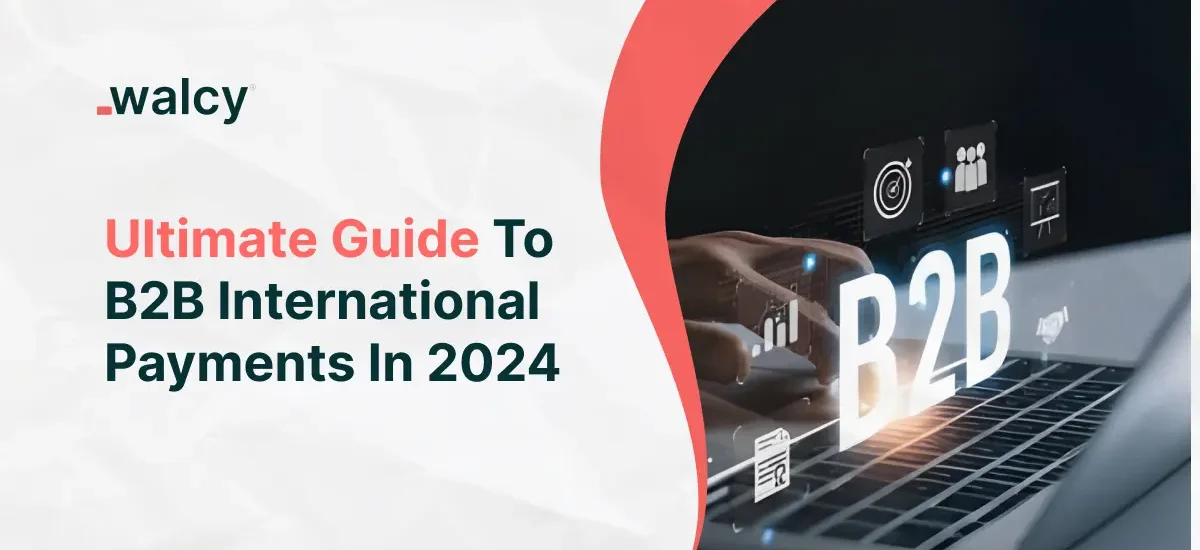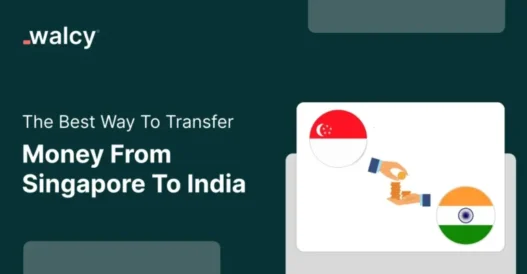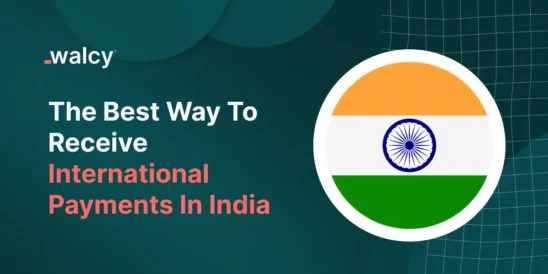What Are B2B International Payments?
B2B international payments refer to payment transactions that involve firms operating from one country and paying firms from another country.
Such operations are critically important for companies being involved in international business as these help them to make payments for and purchases of goods and services, as well as contribute to the running of international relationships and the performance of various operations globally.
Both domestic and international B2B payments differ from each other. International B2B transactions include factors that are beyond domestic B2B payments such as the issue of exchange rates, different regulatory systems, and different banking systems for various international payers.
How Do Cross-Border Payments Work?
When it comes to cross-border transfer, it can be made in different ways, which include the traditional banking channel, through the PSPs, and the use of innovative companies such as fintech firms and neobanks. This includes several steps so that it can be completed successfully as listed below.
Initiation:
This form of payment is initiated when a payer wishes to make a payment and enters some basic information like the recipient’s account number, and the amount of a payment.
Currency Conversion:
When the other currency is used for payment, some extra costs apply to the transaction due to the current fluctuations of exchange rates.
Routing:
The payment is made through several local Intermediary Banks and other banks that may be in existence.
Clearing and Settlement:
It is cleared and is finally settled through other methods like the System for Worldwide Electronic Payments- SWIFT or any other payment system including the Single Euro Payments Area- SEPA in the European region for instance.
Completion:
The recipient’s bank then charges something like the commission and other charges from the transferred amount and then credits the balance amount into the recipient’s account thus sealing the process.
Read about: Charges For Wire Transfer From India To Canada.
Benefits Of International B2B Payments
Access to the World Market:
B2B international payments allow trade to take place in various parts of the world. They facilitate international business partnerships by incorporating a wider geographical space and offering companies more chances to venture into new areas.
Speed and Efficiency:
Compared to traditional modes of payment, modern solutions are faster. They have instant transactions almost with the result that business runs fast and is very effective.
Cost Cutter:
Irrespective of higher competitive exchange rates, fintech solutions charge lower transaction fees for cross-border payments. This cost-cutting allows businesses to utilize the savings for other purposes. (Know about the Cheapest Way To Transfer Money Abroad.)
Security:
Security measures are more advanced in fintech solutions, and most of its services have high compliance with regulations. This attribute safeguards businesses from fraud and cyber threats.
Cash Flow Management:
B2B payments that are cultivated through fintech solutions makes sure that the cash flow management of a business goes through the smoothest of phases.
Read about: Top Online Payment Methods Across The World.
B2B Cross-Border Payments Challenges
Despite the benefits, there are several issues associated with B2B international payments.
Risks of Currency Exchange:
Exchange rate fluctuations may cause the fluctuation in cost. This may lead to unintentional wastage of money and make the business financially unstable. (Know how to save money in cross border payments)
Regulatory compliance:
Different nations have their rules and regulations which make it challenging for foreign exchange transaction regulatory compliance.
Payment Delay:
Payment delays in cross-border transfers involve several middlemen. Those delays can create issues with cash. It can affect business operations. Businesses feel frustrated and less efficient.
High Transaction Costs:
The traditional banking channels charge a high fee for an overseas transfer. All those charges become exorbitant. That makes cross-border transfers pricey and costly for any business. (Know about the cost associated with the international payments)
Fraud and Security Risks:
This will ensure the safety of the transactions from fraud. The cross-border payments are vulnerable to fraud and related cyber threats. Such, therefore robust security measures are necessary to ensure that the information about the financial data and transaction is safe.
How To Improve B2B Cross-Border Payments
Adopt Fintech Solutions:
The adoption of the fintech platform offers a fast, low-cost, and secure means of executing payments. Most of them charge lower fees and also offer competitive exchange rates, thus reducing the overall cost incurred in cross-border transactions.
Security measures implemented by these platforms are also advanced, safe, and compliant with set regulations, avoiding fraud.
Use Multi-Currency Accounts:
Multi-currency accounts can reduce frequent currency conversions and exchange rate risks. By holding funds in multi-currencies, businesses can get the benefit of favorable exchange rates. This can reduce the future impact of fluctuating currencies on the bottom line of your business.
Automate Payments:
Through automation, various processes can be simplified by avoiding errors and reducing time consumption. Automation in businesses will help in scheduling payments, tracking the different stages of transactions, and reconciling, which would enhance efficiency in making and processing payments.
Increase Transparency:
Business organizations can use transparent payment solutions and track or trace any payment in real time from initiation to the end.
This in turn enables business houses to ensure that funds are transferred securely and on time. Such transparency also ensures efficiency in tracking or identifying problems associated with the entire procedure so that the same can be sorted at the earliest possible.
Read about: Cross-Border Payment Solutions: Past vs. Present vs. Future
Collaborate With Trustworthy Partners:
A trusted financial institution or a payment provider would provide much smoother transactions. These partners offer advice regarding the best way to navigate through the difficult waters of regulatory requirements.
Also, they offer advanced payment technology access for services like cross-border payments. They also extend support regarding any set of issues related to the payments.
With reliable partners, a business would be in well-established and long-term relations that could ensure long-term success in cross-border payment operations.
Read about: Top 8 Fintech Trends of 2024 & 2025
Conclusion
B2B international payments form an essential part of cross-border trading, which allows enterprises to operate and expand their reach beyond national frontiers.
These transactions create trading partnerships enabling businesses to find access to fresh markets and supporting material sources for new customer acquisition across the globe.
Enterprises must understand the intricacies involved in making cross-border payments currency risk, regulatory requirements, and late payments so that they can as a payment process, or otherwise pay smarter.
The current day offers modern solutions, such as fintech platforms, multi-currency accounts, and automated systems for making cross-border payments, in reducing this b2b international payments’ inefficiency to a great extent.
Businesses that turn to this forward-looking technology, perfectly designed in combination with reliable partners, are increasing aspects of efficiency in daily payment operations, improving their services for customers, and mitigating their overhead.
And rightly so, informed and adaptive businesses thrive in this ever-shifting space of cross-border payments: seamless, frictionless, efficient financial operations that span borders effortlessly.
FAQs
What Are B2B Payments?
Business-to-business or B2B payments are the exchanges of products or services that are directly financed between companies. They occur within and between all industries out with distributors, manufacturers, retailers and service providers, and small and large firms.
What Is A B2B Payment System?
A B2B payment system is a platform that allows financial transactions between businesses, including invoicing, payment processing, and reconciliation.
Why Are B2B International Payments Important?
B2B international payments are essential because they enable businesses to get engaged in international trade. Moreover, it provides the opportunity to access new markets and maintain global supply chains, which are essential for growth and competitiveness.
Are The Challenges Of B2B International payments?
Key challenges include currency exchange risks, regulatory compliance, payment delays, high transaction costs, and fraud/security risks.
What Solutions Are Available For B2B Cross-Border Payments?
Solutions include fintech platforms, multi-currency accounts, automated payment systems, transparent payment tracking, and partnerships with reliable financial institutions.
How Can Businesses Automate B2B Payments?
By using software and platforms that support automated invoicing, payment processing, and reconciliation, reducing manual intervention and errors.
What Is A B2B Payment Gateway?
A B2B payment gateway is an online service that processes payments for businesses, ensuring secure and efficient transactions.
What Is The Role Of Fintech In B2B International payments?
Fintech companies provide innovative solutions that offer faster, cheaper, and more secure payment options, enhancing the overall efficiency of cross-border transactions.
Do follow us on Facebook and LinkedIn, to stay connected with us.



